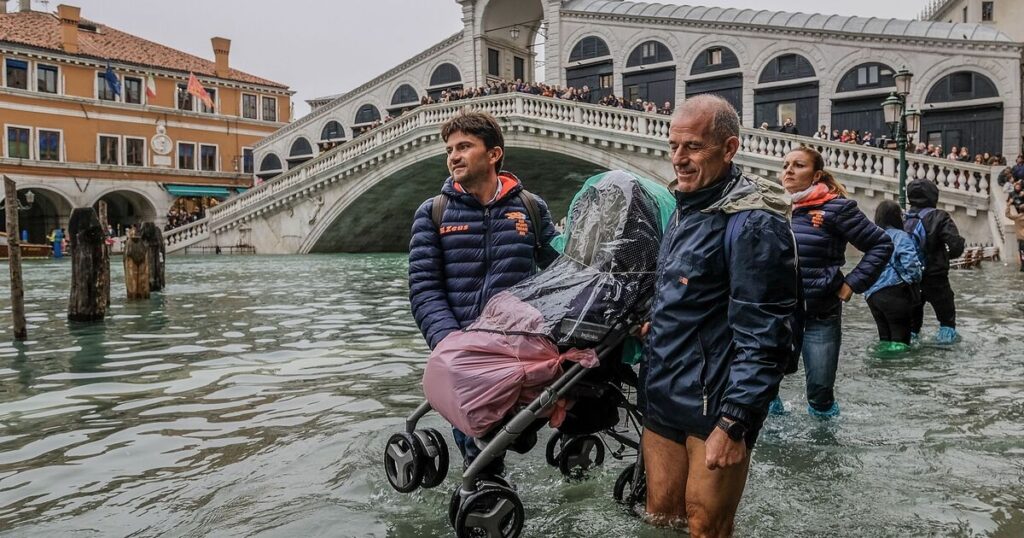One of the popular European cities has sunk, and travel fans fear it will become like “Atlantis.”
Venice is located in northeastern Italy and is the capital of the Veneto region. Built on over 100 small islands, it is intersected by 177 canals.
The city is best explored on foot using hundreds of bridges. And since it is a car-free zone, the main transport includes walking and boating.
According to BBC Future, this unique feature of Italian hotspots attracts tourists. The publication predicts that in the worst-case scenario, the city could “disappear under the waves as early as 2100.”
The serious circumstances led people to compare it to Atlantis, the fictional legendary lost island described by the ancient Greek philosopher Plato.
Speaking about this issue, a Tiktok video shared by Jennifer Napolski provided details.
The clip's narration added that “Venice is once an ancient city that had the most powerful people, materials and power in Europe.” It added that you can visit St. Mark's Square, Venice's main public square, and St. Mark's Basilica, some of the city's most famous attractions.
The voice over continued. “Today, climate change has sunk the foundations of Venice. Sea levels are rising, and Venice's life is coming to an end.
“Maybe in 50 years, this miracle at sea will sink to the bottom of the ocean. By then, charming streets, romantic century buildings, and underwater dreamy islands will disappear into the ocean. If you have the opportunity, you will need to take your family with you to visit this disappearing city.”
Venice is prone to flooding at certain times of the year due to a phenomenon known as “Acqua Alta,” translated into “high water.” This occurs when water from a Venice lagoon sets up and floods cities, combined with other environmental factors, such as very high tides (particularly the sciroccan winds from the Adriatic Sea) and low atmospheric pressure.
Floods mainly occur during the fall and winter from October to December, but can occur at other times depending on weather conditions.
Climate change is contributing to sea level rise, exacerbating the flood problem. But all hope has not been lost.
To suppress rising water and protect the city, Venice is pinning its hopes to the upcoming Mose (experimental electromechanical module) project.
This is expected to install a sea-based defensive barrier consisting of 78 mobile gates (which can pass through), each located at a width of 20m (66 feet) each, and at key points to create a “coastal cordon.”
Jennifer's ticoku video highlighting the Venice floods has earned nearly 3,000 comments. People are naturally worried about their destinations and hope that they won't be lost over time.
One user predicted, “One day they'll talk about Venice as we talk about Atlantis.” The other is, “What if Atlantis was a prophecy instead of historical fiction?”, and the third is, “Underwaters of Venice. It looks like it will become the new Atlantis.”
Others share their concerns. “I was there 10 years ago and this wasn't flooded.”
Another comment states, “This is horrifying to those who have lived there for generations.”
And a further commenter said, “It's so sad that it's so sad that it loves Venice. I've been there many times.”


